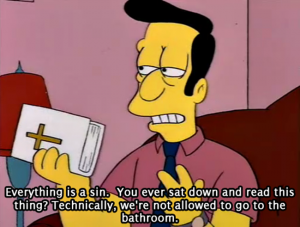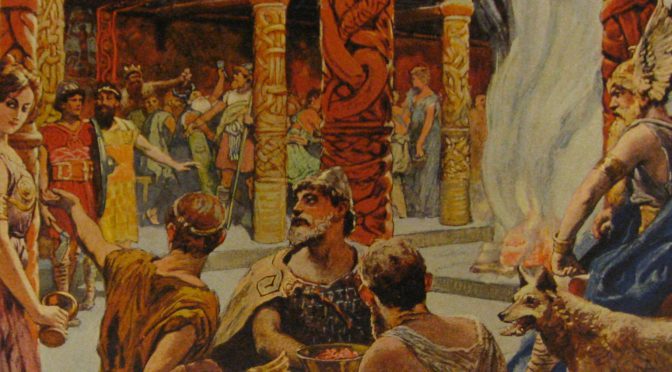Recently I wrote about the potential drawbacks of immortality and, funny enough, I haven’t stopped thinking about mortality since. We’re the only animals on this planet that understand we’re here for a finite time. From the day we first learn what death is, we know on some level that it’ll eventually be our turn. When we’re young, it doesn’t quite occur to us day to day, but we still feel it on some level. And when we’re older – well some of us can’t stop thinking about it. The fear of death, in one way or another, shapes our very lives as we decide how we want to spend what little time we have here.
And a result of this, as I mentioned last week, is that the very idea of religion is often an attempt at finding a way out. Mythology has often dealt with the ideas of the natural world and explaining what’s around us. We have gods of thunder to explain why lightning streaks across the sky and the world rumbles like the clash of a mighty hammer. We tell stories of how all the world’s ills came from a box opened in a moment of curiosity or eating the wrong fruit. It’s in our nature to personify the forces of the world around us. But your religion, if you’re honest with yourself, is almost always about your mortality – a fact I forgot to mention when writing on how to go about treating the faith of fictional characters.
Many would say that your religion is what you believe in, but there are systems of belief out there which are fairly anti-religious. Others would say that a belief in a god of some sort is required, but there are forms of Buddhism with no gods to speak of. And, of course, some would say the rites and rituals are what make a religion and that you’re otherwise just spiritual – but once again I don’t quite agree. I’ve personally interacted with people who aren’t Wiccan but will still practice some of their rituals. To them, it’s simply a mythology, even if it’s a religion for someone else. And we’ve all known people who hold a religion but don’t stick to the traditions. In fact, many think that someone who does try to stick to all of their traditions zealously is not of sound mind.

So, while these religions may have all of those beliefs and rituals, the one thing holding them above simple mythology is that people believe in their version of the afterlife. And the funny thing is, because it’s so important to these belief systems, that afterlife says a lot about the people that believe in it.
Continue reading Monday Musing: What Our Afterlives Say About Us


